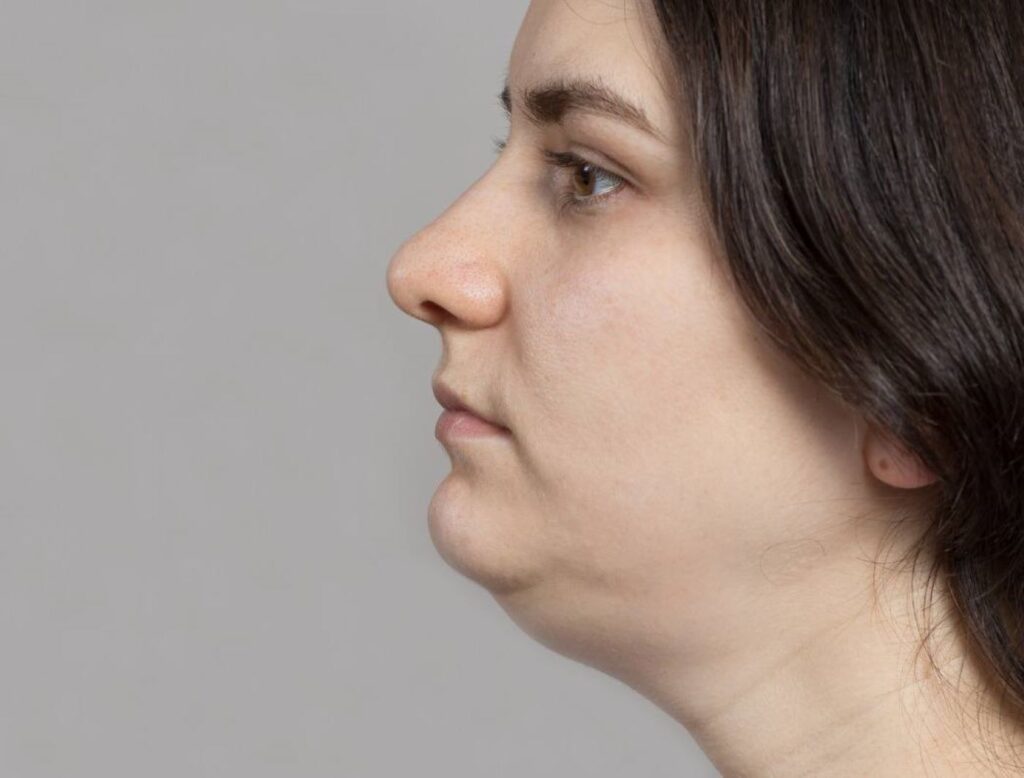Health Conditions
Discover the Surprising Vitamin Deficiency Behind Sagging Skin
Understanding this deficiency could be the key to rejuvenating your skin and reclaiming a more youthful appearance.
Do you notice a lack of firmness in your skin? Sagging skin is a common issue as we age, but it may also indicate a vitamin shortage. In this article, we’ll look at which specific vitamin deficiency may be causing your skin to lose suppleness.
Understanding the Role of Vitamins in Skin Health
Collagen is an essential component for healthy and vibrant skin, since it helps to preserve its structure and suppleness. Collagen is a protein that provides support and elasticity to the skin. However, if you are low in particular vitamins, your body may struggle to manufacture adequate collagen, resulting in drooping skin.
Vitamins are essential for keeping skin healthy and preventing numerous skin diseases. They are vital for collagen formation, free radical defense, and general skin regeneration. While various vitamins have an impact on skin health, vitamin C is particularly important in keeping firm and youthful skin.

Common Causes of Sagging Skin
Sagging skin can be caused by a variety of factors, including age, genetics, lifestyle habits, and environmental exposure. As we age, the production of collagen and elastin, which are responsible for skin suppleness, decreases. This natural decline in collagen production can cause drooping skin and wrinkles.
Furthermore, extended exposure to the sun’s damaging UV rays can degrade collagen fibers and elastin, causing skin to lose firmness and suppleness. Smoking, poor nutrition, and dehydration can all lead to the development of drooping skin.
The Impact of Vitamin Deficiencies on Skin Health
Vitamin shortages can have a serious influence on skin health, causing a variety of skin disorders, including drooping skin. When your body is deficient in critical vitamins, it may struggle to generate collagen and maintain normal skin structure. This can cause a loss of elasticity and firmness in your skin, making it appear sagging and loose.
Vitamin C is an essential nutrient for skin health. It promotes collagen formation while also protecting against free radical damage. A vitamin C shortage can weaken the collagen strands in your skin, causing drooping and wrinkles.
Vitamin Deficiencies that Can Cause Sagging Skin
Several vitamins are essential for preserving skin elasticity and preventing drooping skin. In addition to vitamin C, deficits in vitamins A, E, and K can cause your skin to lose firmness and suppleness.
Vitamin A is necessary for collagen formation and serves as an antioxidant, protecting the skin from harm. Vitamin A insufficiency can cause dry, sagging skin. Also Vitamin E is another potent antioxidant that protects the skin from oxidative damage while also maintaining its suppleness. A deficiency of vitamin E can cause premature aging and drooping skin.
Vitamin K promotes blood clotting and may help lessen the look of dark circles beneath the eyes. Vitamin K deficiencies can cause weakened blood vessels and poor circulation, resulting in skin drooping and bruises.

Signs and Symptoms of Vitamin Deficiencies
Identifying the signs and symptoms of vitamin deficiency might help you treat them before they cause major skin damage. Dry and flaky skin, rough texture, dull complexion, sluggish wound healing, and increased bruising are all classic symptoms of vitamin deficiency.
If you observe any of these symptoms, you should see a doctor who can run blood tests to establish your vitamin levels and recommend suitable supplements or diet adjustments.
Importance of a Balanced Diet for Skin Health
Maintaining a balanced diet is essential for overall health and well-being, including skin health. A diet high in vitamins, minerals, and antioxidants can nourish your skin from within, increasing its suppleness and firmness.
Include a variety of fruits and vegetables in your diet to ensure adequate vitamin and mineral intake. Citrus fruits, berries, leafy greens, carrots, sweet potatoes, avocados, and almonds are all fantastic skin-healthy options.
Foods Rich in Vitamins that Promote Skin Elasticity
Certain meals are especially high in vitamins that improve skin suppleness and can help with drooping skin. Incorporating these items into your diet can offer your body with the nutrients it needs to keep its skin healthy and firm.
Citrus fruits, strawberries, kiwi, bell peppers, and broccoli are all good sources of vitamin C. Foods high in vitamin A include sweet potatoes, carrots, spinach, and kale. Almonds, sunflower seeds, spinach, and avocados are all good sources of vitamin E. Finally, for vitamin K, include leafy greens such as kale, spinach, and collard greens in your diet.

Vitamin Supplements for Improving Skin Firmness
While a well-balanced diet should give you with the vitamins you need for good skin, supplementation may be required in some cases, particularly if you have a shortfall. Consult a healthcare practitioner to discover if vitamin supplements are right for you and to ensure you’re taking the right amount.
Vitamin C, vitamin A, vitamin E, and vitamin K supplements can help treat deficiencies while also improving skin firmness and suppleness. However, it is vital to note that supplements should not be used in place of a healthy diet, but rather in addition to it.
Conclusion
In conclusion, drooping skin can be caused by a variety of circumstances, including vitamin deficiency. Vitamin C, along with vitamins A, E, and K, are essential for preserving skin elasticity and firmness. Identifying and correcting any deficiencies with a well-balanced diet and, if necessary, supplementation can help you look younger.
To keep your skin healthy, remember to protect it from the sun, avoid smoking, and live a healthy lifestyle. By providing your body with the necessary vitamins and nutrients, you may stimulate skin renewal and retain a more youthful and vibrant complexion.
So, if you’ve been experiencing drooping skin, it’s time to assess your vitamin consumption and make the required changes to achieve healthier, firmer skin.
Trusted Health, Wellness, and Medical advice for your well-being



